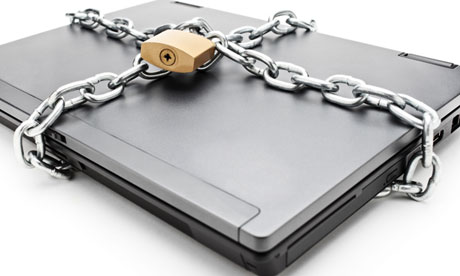|
June 11, 2013
We now live in a world where electronic networking has penetrated into part of people's lives to the extent that we now talk in terms of the physical and virtual worlds. We are just as concerned about our personal identity and privacy in a networked world as we are about the corporate power of the global internet giants.
 LJS photography/Alamy
LJS photography/Alamy
John Naughton in his column, To the internet giants, you're not a customer. You're just another user in The Guardian, spells out the adage that if the service is free, then its users are its product. He says that when the history of our time comes to be written, people will marvel at the way that billions of people were seduced into the kind of one-sided agreements they have struck with outfits such as Yahoo, Google, Facebook, Microsoft and Apple.
In the case of Facebook, the historical analogy that comes immediately to mind is sharecropping – the agricultural system in which a landowner allowed tenants to use his land in return for a share of the crops produced on it and which was once a staple of the southern states of the US. Its virtual equivalent is the Facebook system: a billion people till Master Zuckerberg's land, creating all the content that is then harvested by him and his advertiser buddies. The only difference is that on Facebook the sharecroppers don't get any share of the proceeds. They're just croppers.
He adds that the really weird bit is that the croppers are absurdly pleased with their lot.
They get to post photographs of themselves drunk, sober, recumbent and upside-down. They get to "Like" their friends' jokes and status updates and to organise parties and social events without having to use obsolete media such as email. And in the process they "pay" for this entertainment with their privacy and their personal data, apparently without batting an eyelid. We users have signed agreements that require us to accept all kinds of conditions imposed by us, whilst explicitly exempting the internet giants from any obligations whatsoever.
The internet giants are not alone in the surveillance of citizens. In our networked world the rapid technological change now permits clandestine surveillance (electronic snooping ) on a massive and Orwellian scale, whilst the legal safeguards and political oversight is lagging behind. The security state is now saying that a government can legitimately spy on its own people on the grounds that it is trying to protect them from threats of terrorism. As Clay Shirky points out with respect to the Obama Administration the result is that:
the distinction between gathering information on particular targets of investigation and members of the general public has collapsed, while the loophole for gathering "incidental" information has expanded so broadly as to allow for wholesale acquisition and storage of electronic communications of any person anywhere, forever.
The security apparatus run by the US government in the world has broken almost completely free of the checks and balances needed in a democracy.
It is not, however, just limited to the US. The National Security Agency (NSA) has collected pieces of intelligence from computer networks worldwide. It has obtained direct access to the digital systems of Google, Facebook, Apple and other US internet giants. The Internet surveillance program called Prism collects data from online providers including e-mail, chat services, videos, photos, stored data, file transfers, video conferencing and log-ins.
|

Will the Gillard Government or the Coalition demand "swift and concrete answers" to their requests for assurances from the US that its mass data surveillance programmes do not breach the fundamental privacy rights of Australian citizens.
Some how I doubt it.